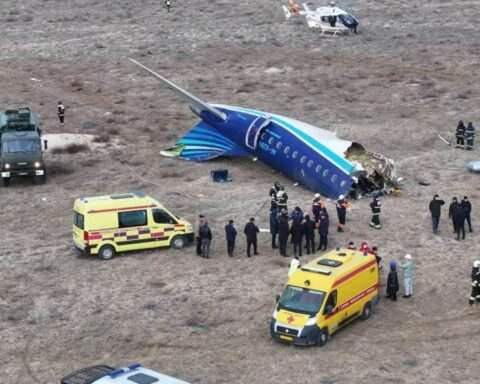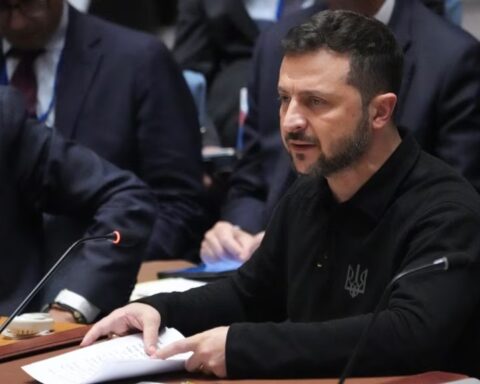Michelle Bachelet expressed alarm over the suffering of civilians as hostilities continue to widen along the line of contact, also affecting other populated areas outside the immediate area of fighting.
“It is deeply worrying that in recent days we have seen populated areas reportedly targeted and shelled with heavy weaponry in and around the conflict area”, she said in a statement.
Long-standing conflict
The conflict over the Nagorno-Karabakh border region, in the South Caucasus, has persisted for more than 30 years, with the latest flare-up between Armenian and Azerbaijani forces commencing late last month.
Since then, artillery strikes have reportedly hit several cities, towns and villages.
The UN human rights office said information from different sources suggests that as of Thursday, some 53 civilians, including children, have been killed. However, staff have not been able to independently verify this information.
A large number of buildings, including houses, schools, and other civilian facilities are also reported to have been destroyed, most of which were located in Nagorno-Karabakh.
Respect international obligations
Ms. Bachelet reminded the warring sides of their obligation under international humanitarian law to protect civilians and civilian infrastructure.
“I also remind all States, particularly those with influence over parties to the conflict, that they are required by international law to do everything within their power to ensure respect for international humanitarian law, including the protection of civilians”, she added.
Concern over cluster munitions
The UN rights chief also expressed concern over reports that cluster munitions had been used in the conflict area.
“Cluster munitions scatter small, often bright or colourful bomblets over wide areas, many of which fail to explode immediately but can then kill and maim for years afterwards”, Ms. Bachelet explained.
“The use of such munitions should stop immediately. I also urge Armenia and Azerbaijan to join the more than 100 States that have ratified the Convention on Cluster Munitions which comprehensively bans their use.”
She further urged the parties to refrain from using hate speech to stoke divisions, underlining the need for constructive dialogue.
Health under fire
As this latest outbreak of hostilities is taking place during the COVID-19 pandemic, Ms. Bachelet was concerned that the violence posed a direct threat to health, with all sides struggling to contain the spread of the virus.
She said some civilians have reportedly moved to basements, or other shelters, meaning they are unable to maintain physical distancing, or have full access to clean water and sanitation.
“Access to healthcare must be ensured, and this includes providing psychosocial support for victims of this conflict, including those harmed as a result of the latest hostilities and those affected over the more than three decades of the Nagorno-Karabakh conflict,” she stressed.






